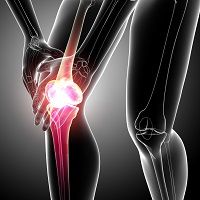Article
Men Show Better Function After Total Knee Replacement Than Women
Author(s):
When it comes to a total knee replacement (TKR), gender proved to be an important factor in a new study that shows men have better function before and after the surgery.

When it comes to a total knee replacement (TKR), gender proved to be an important factor in a new study that shows men have better function before and after the surgery.
Lead Authors Jeffrey J. Cherian, DO, and Michael A. Mont, MD, along with colleagues studied 278 TKR patients consisting of 108 men and 170 women. Each patient underwent TKR surgery between 2005 and 2007. The average age was 67 for men and 66 for women and all except for 2 were diagnosed with end-stage arthritis.
"Our data supports that while both genders benefit from TKR, men have higher levels of function and activity both prior to and after TKR compared to women," Cherian and Mont said in a news release.
The authors presented the study “A Prospective, Longitudinal Study of Outcomes Following Total Knee Arthroplasty Stratified by Gender” at the 2015 Annual Meeting of the American Academy of Orthopedic Surgeons (AAOS) on March 24.
The implant survival score at the five year post-surgery mark came to 100% for men and 99.1% for women. The researchers found the patients’ functional scores at 6 pointsof time and compared men to women:
- Preoperatively: 57.1% versus 51%
- Six weeks: 63.7% versus 51.5%
- Three months: 83.1% versus 74.3%
- Two years: 90% versus 81.6%
- Five years: 90.1% versus 82.9%
- Seven years: 96% versus 79.5%
At all of the preoperative and post-surgery stages, men had higher functional scores than women. The team noted that both genders benefit from TKR surgery but the numbers show that women do not reach the same level of improvement as men.
"These functional outcome differences are most likely due to many factors (including biologic/genetic) and highlight the need for further research related to the role of gender of both the patient and the surgeon in the decision making process of TKR, sex-based biological differences in functional recovery capacity, and whether sex/gender based pre- and postoperative rehabilitation protocols are warranted," Cherian and Mont said.





